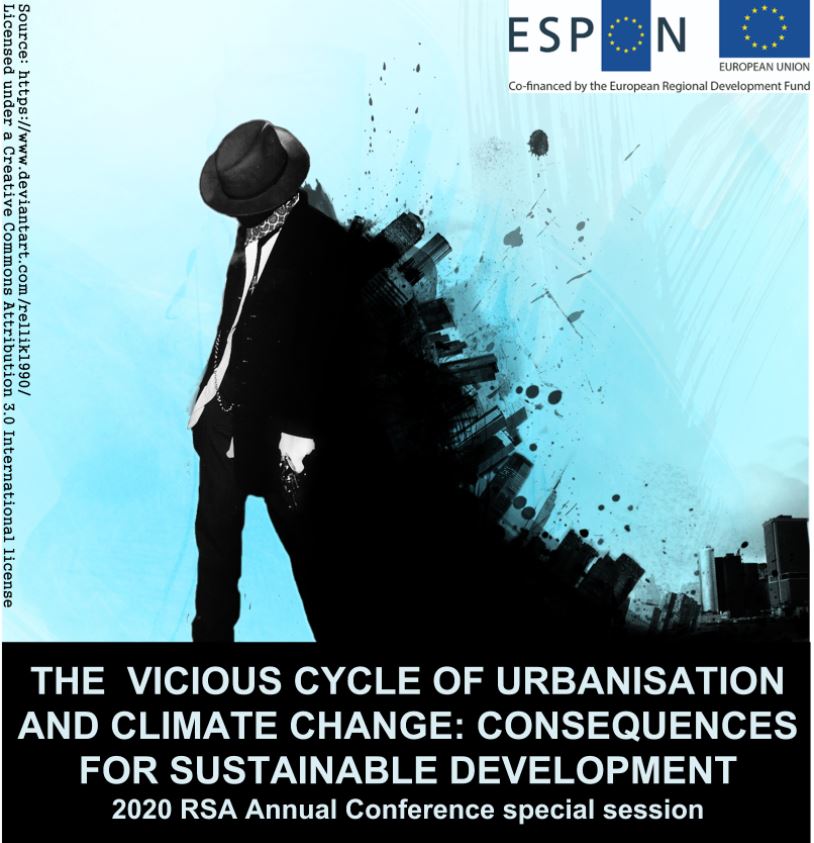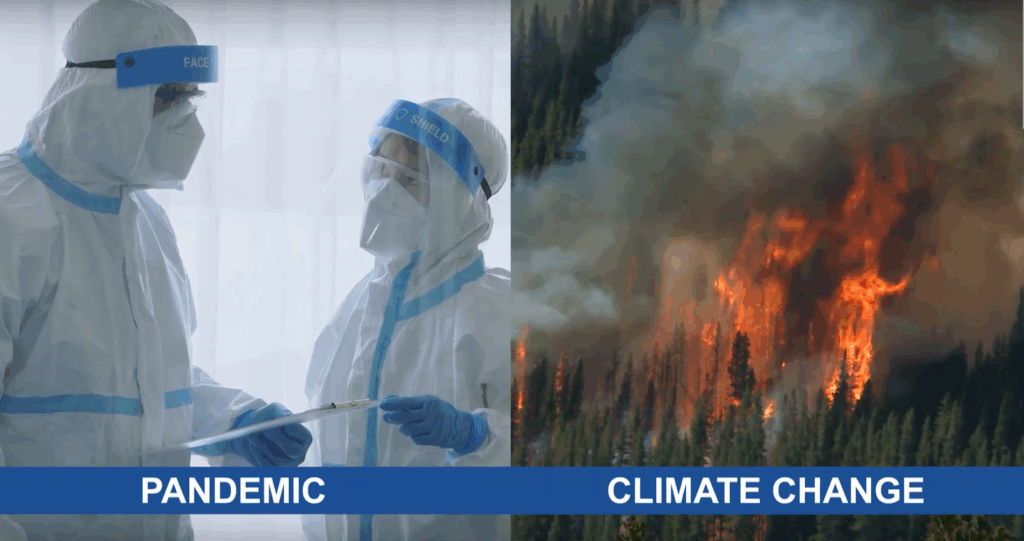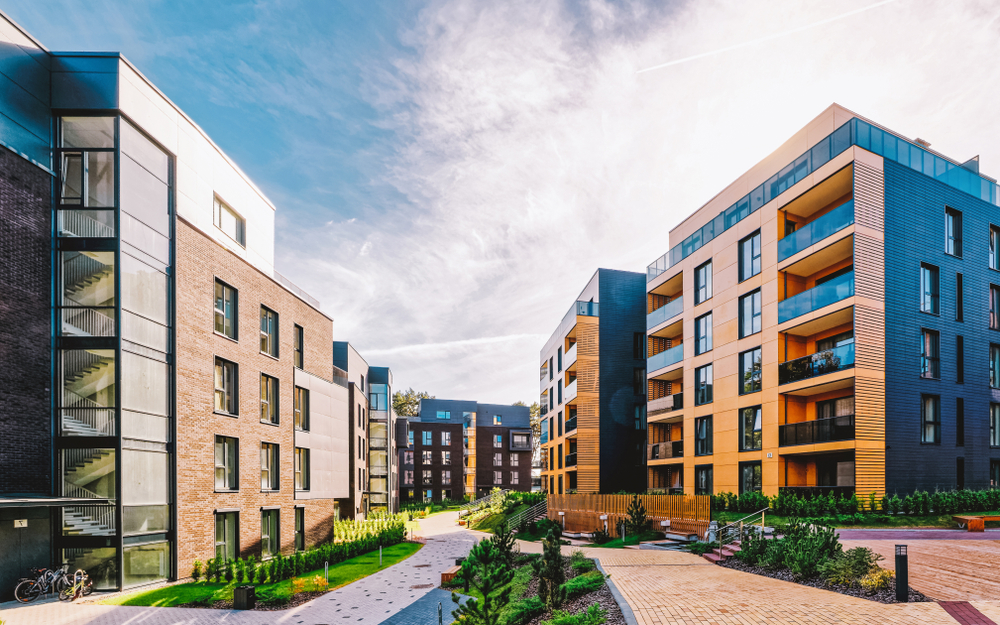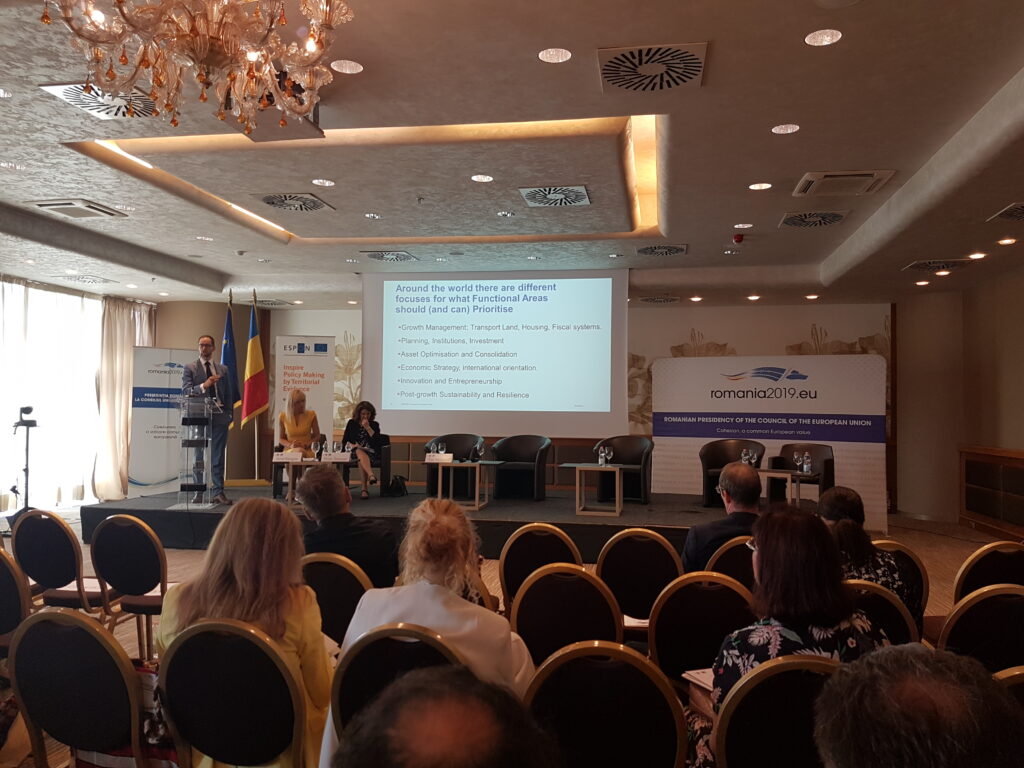ESPONi erisessioon “Linnastumise ja kliimamuutuste nõiaring” RSA konverentsil 17.-20. juunil 2020 Ljubljanas

Kutsume osalema Regional Studies Association’i aastakonverentsil Ljubljanas, Sloveenias. ESPON korraldab konverentsil erisessiooni, kus tähelepanu all on linnastumise ja kliimamuutuste suletud nõiaring, millest täielikult välja on võimalik murda vaid läbi jätkusuutlikku maakasutuse planeerimise. Sessiooni kandvaks ideeks on, et eeslinnastumise piiramiseks põllumaade arvelt ning eeslinnade üha suureneva liikluskoormuse ohjamiseks on vaja paradigmamuutust ruumilises planeerimises. Sessioon viib kokku Ida- ja Lõuna-Euroopa planeerijate praktika kliimamuutustega kohanemisel.
NB! Registreerimise tähtaeg on 31. jaanuar 2020.
Loe lisaks: https://tartu.postimees.ee/6878226/antti-roose-ja-garri-raagmaa-tartut-ummistavad-lahivaldade-autod
Sessiooni kirjeldus inglise keeles:
2020 RSA Annual Conference special session “The Vicious Cycle of Urbanisation and Climate Change: Consequences for Sustainable Development”
Urbanised areas in Europe expand every year irreversibly in the size of Berlin. Densification takes place mainly within and near metropolitan areas. Core Europe attracts from all over the world highly competitive talents and numerous immigrant population. European peripheries, on the contrary, are losing population, their rustbelts and vast rural areas have been converted to the places that don’t matter. There is a rising protest against today’s elitist agendas, periphery is increasingly voting for populist or far-wing parties.
Additional long term change in European urbanisation patterns can be anticipated due to the climate change: drought, heat waves and water scarcity in South creates serious problems for the Mediterranean. Drier conditions increase urbanisation which provides an “escape” from the deteriorating rural productivity and accelerates rural exodus. Urbanisation, in turn, has a climate effect too: heat island effect and heatwaves in South drive urban housing and infrastructure into oasis-like areas. The aging rural population is likely to result in a higher number of vulnerable people across peripheries whose ability to cope in rural areas impacts the future level of urbanisation.
Eastern Europe is affected less by the climate change, though their national policies remain weaker and the general public is hardly aware of the problem. There is little doubt that urban areas and population determine the energy transition. With urban growth occurring in a business-as-usual manner, urban councils struggle to scope with adaptation needs in case of fast urbanisation. Given the scale and scope of urbanisation in Europe, the compounded impacts of urbanisation and climate change will potentially have major consequences on future quality of life and foster regional divides. To address the vicious cycle of urbanisation and climate change, there is a pressing need to upgrade the urban planning chapter with climate change allowances in European planning agenda.
The session welcomes speakers mainly interested about the Southern and Eastern Europe. Bridging discussions from those two planning macro-communities enables to benchmark and debate the urban challenges. We welcome presentations on the following topics:
(a) Climate futures and land use patterns
(b) Consequences of urbanisation in the climate crises
(c) Climate change and territorial structures
(d) Contribution of climate change and urbanisation to the Sustainable Development Goals 11 (Sustainable Cities and Communities) and 13 (Climate Action)
(e) Planning agenda for resilient cities and the European geographic peripheries avoiding new territorial divides
Session organisers:
Prof József Benedek, Babes-Bolyai University, Romania
Dr Antti Roose, Tartu Regional Energy Agency, Estonia
Dr Garri Raagmaa, Tartu University, Estonia
Ingmar Pastak, Tartu University, Estonia
If you are interested in participating in the RSA special session, please submit abstract of no more than 250 words via RSA conference portal by 31th of January 2020.



